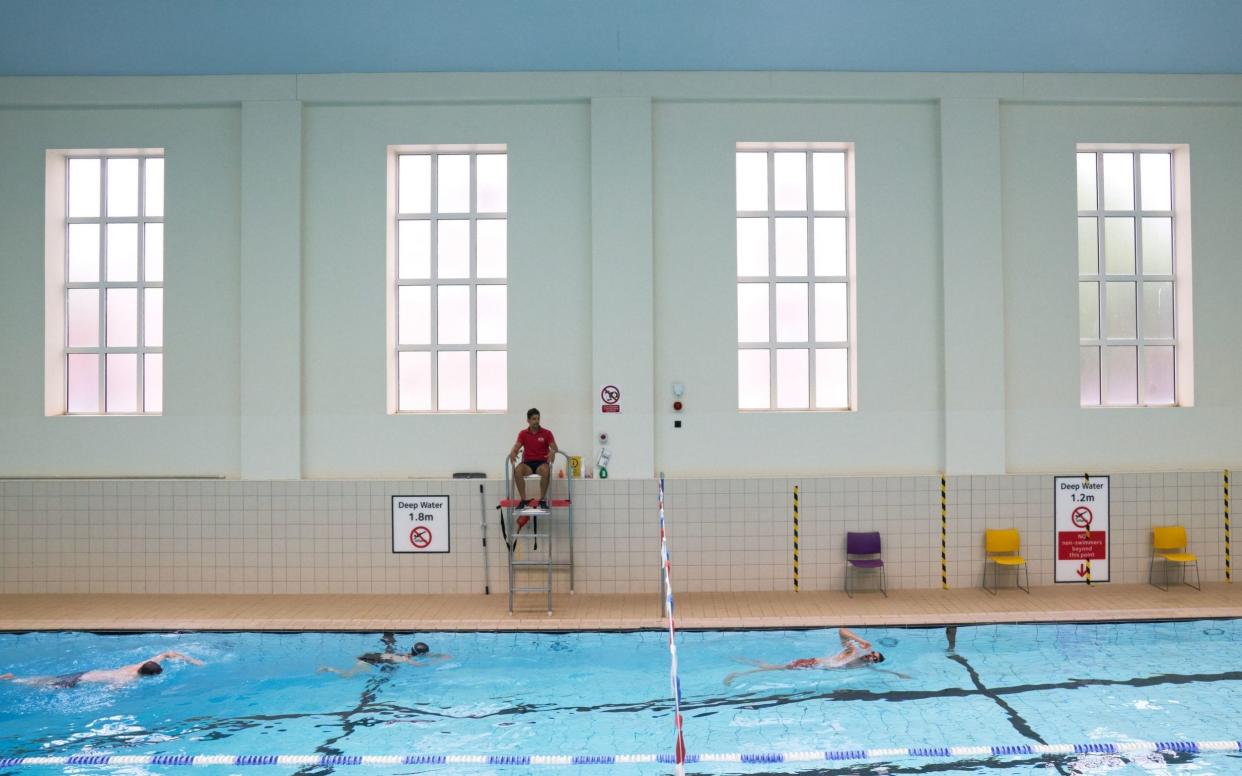Leisure industry crisis bites in Cornwall with only five swimming pools open across county

The entire county of Cornwall, which covers 1,400 square miles and has almost 600,000 residents, has only five public indoor swimming pools back open amid a national leisure crisis that threatens mass closures and job losses.
Telegraph Sport revealed last week how only 56% of public leisure facilities in England actually reopened when lockdown easing allowed and, without ringfenced funding, it has been estimated that 48% of public leisure facilities risk closure, including 1,300 by the end of the year.
The situation in Cornwall, which has limited public transport and some of the most deprived neighbourhoods in the country, is especially acute and the only public indoor pools that have so far reopened are in St Austell, Redruth, Camelford, Truro and Newquay.
Pools in Bodmin, Launceston, Liskeard, Penzance, Bude, Helston, Saltash, Falmouth, St Ives and Wadebridge remain shut.
That has left thousands of people without feasible access to swimming - an activity that is the primary source of exercise for many - at a time when the government has launched a new campaign to tackle obesity.
Amanda Pennington, who is a town councillor in Wadebridge, said that the situation for local people was “pitiful” and that a “timebomb” was being stored up unless central government provided urgent help.
“We have many elderly people in Cornwall and we already have some poor health outcomes,” she said. “How are we going to get people fit and active with such little access to public pools and leisure centres? How are primary school children going to have access to a swimming pool to do their statutory lessons?”

Community Leisure UK, whose members employ 100,000 staff, has launched a national #saveleisure campaign and have proposed an £800 million emergency relief fund that would help sustain community leisure centres, gyms and swimming pools through to March 2021. It says that there are already 4,350 planned redundancies of full-time employees and a further 5,534 planned redundancies of casual jobs, largely impacting on young people.
Most of the public leisure centres in Cornwall are operated by GLL, a not-for-profit charitable organisation, which runs 270 ‘Better’ centres across the country and employs more than 13,000 people. Around two thirds of its facilities have so far reopened nationally.
Chief executive Mark Sesnan said that the organisation had nearly exhausted its pre Covid reserves and that there was a need for the sort of government support that has been evident in other sectors, such as the arts.
“The cost of keeping centres in hibernation for four months with no income, and the ongoing impact of Covid-19 and how services will be delivered, has resulted in a total funding shortfall of around £5m,” said a statement issued by Cornwall Council.
Although public leisure operators have used the furlough scheme, they are not eligible for the same range of emergency business loans as privately operated gyms. This means that help for other costs - such as insurance, maintenance, rent and essential staff - has depended on whether individual local authorities are in a position to help.
Sesnan said that leisure centres had “fallen between the cracks” but were vital to the nation’s health. “If we get through the next 12 months I am quite optimistic,” he said. “These are facilities which have a huge social value but, once they are gone, they are gone.”
A government spokesman said that they had delivered a £4.3 billion package of support during the Covid-19 pandemic to local government and that an additional £500m support package had been announced for councils last month.

 Yahoo News
Yahoo News 
